Boris Buden Livres

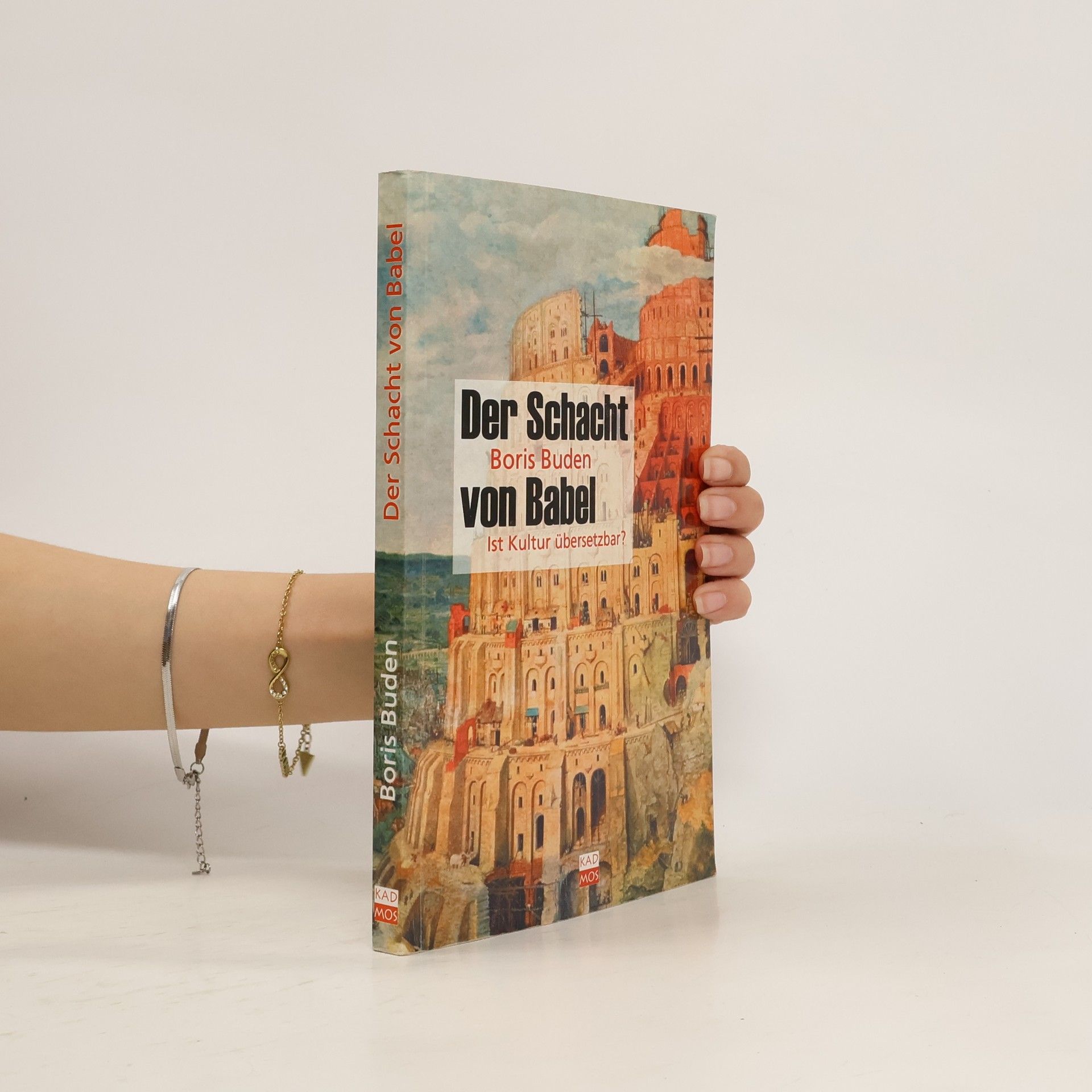
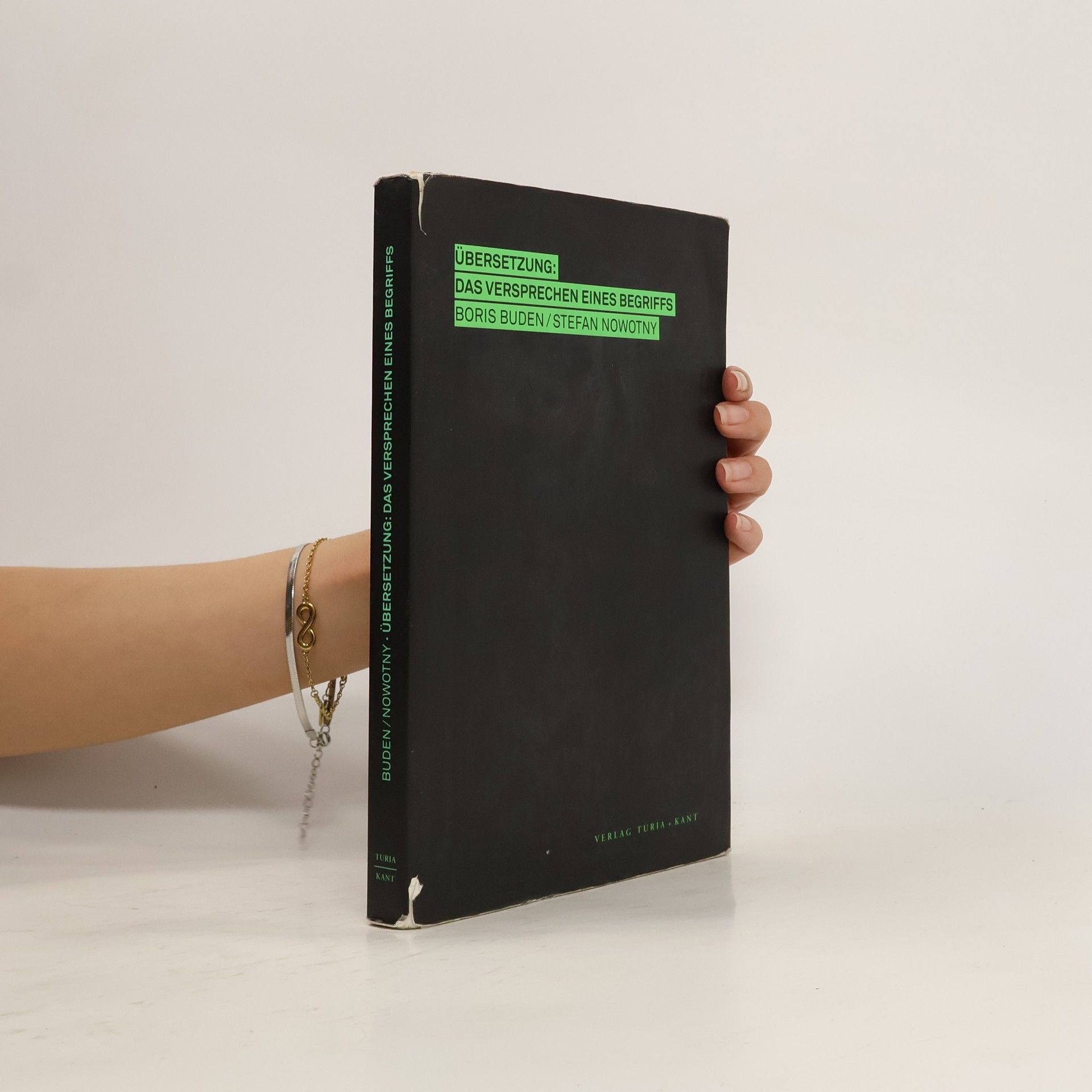
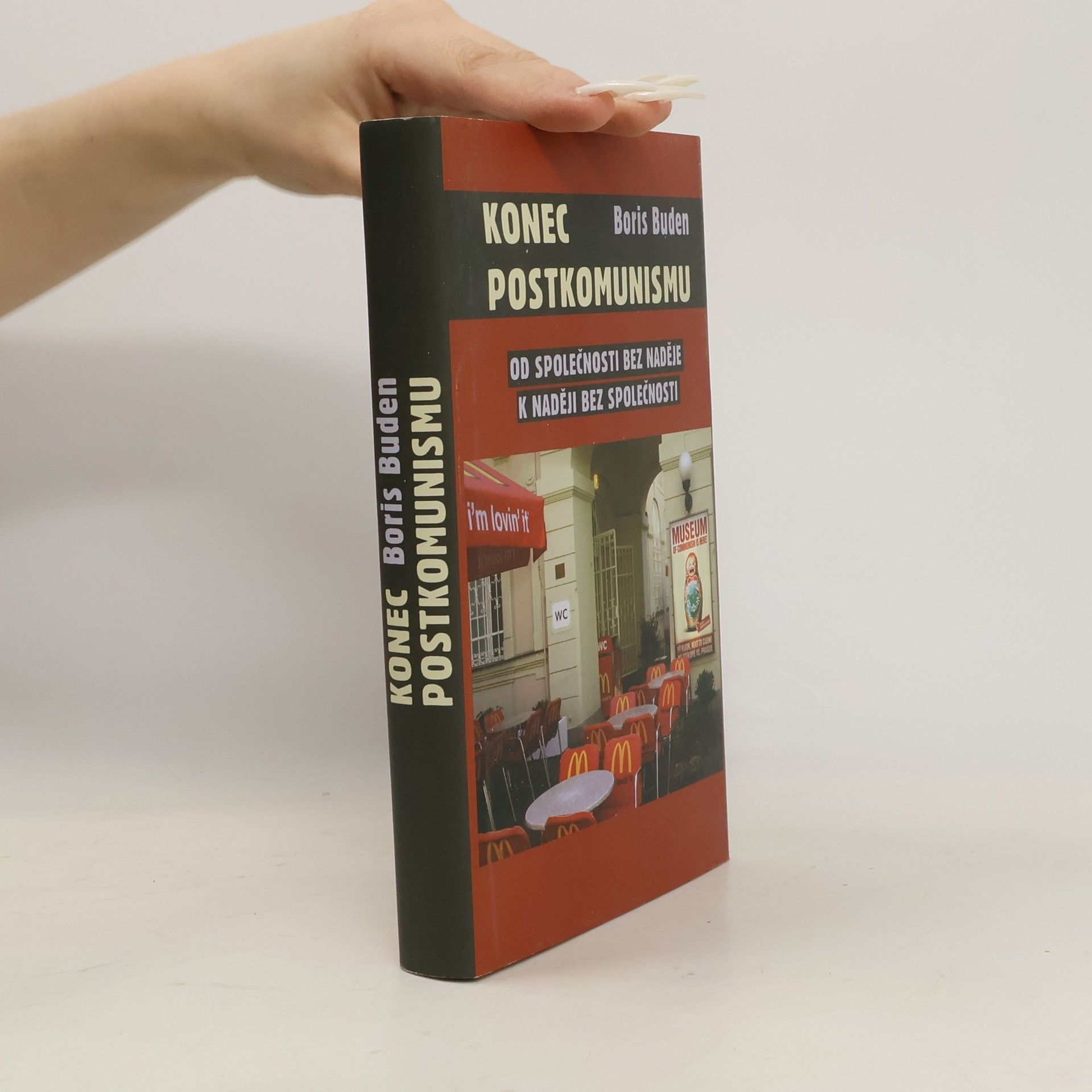
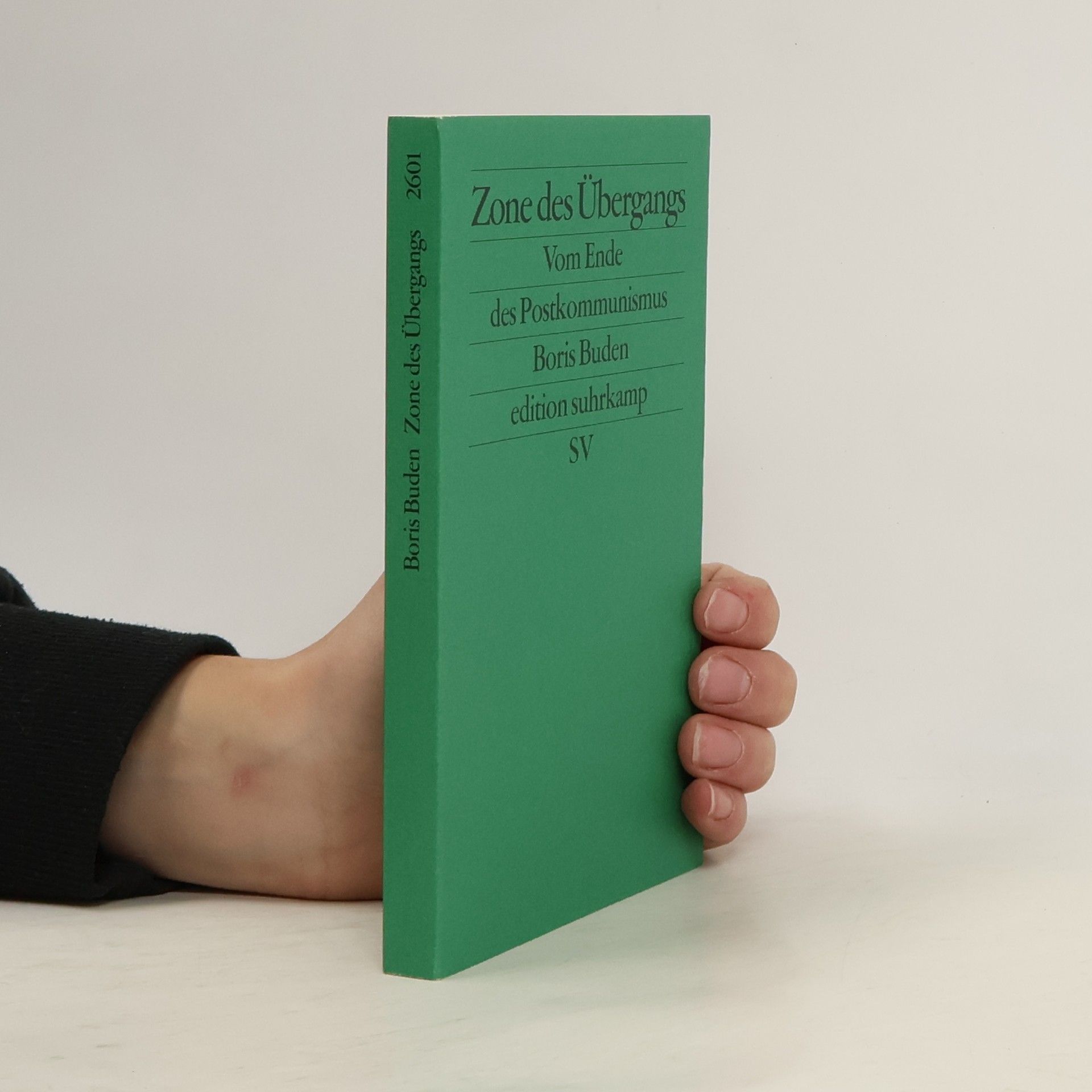
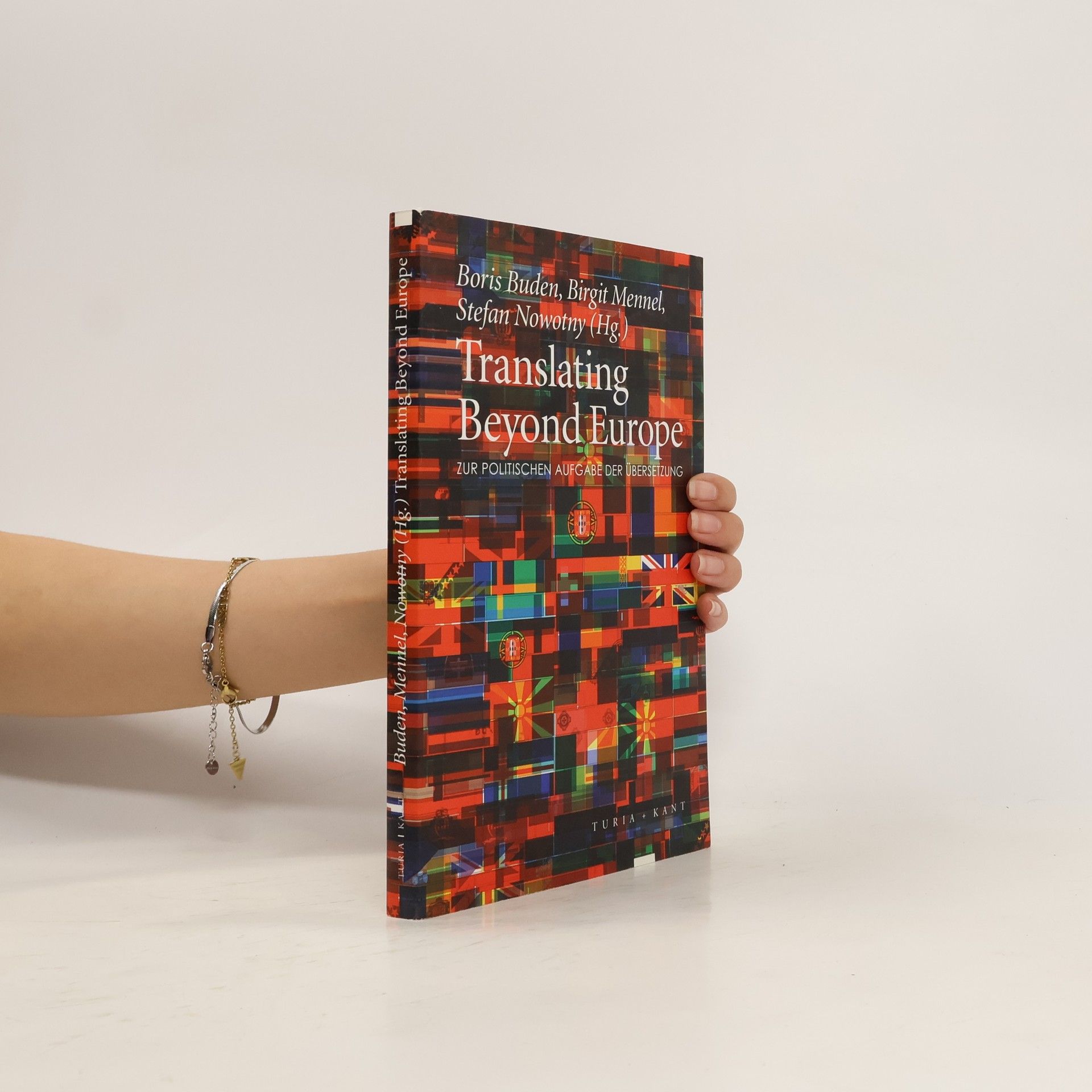

Übersetzung wird hier nicht nur als Medium der Verwirklichung einer multilingualen Demokratie verstanden. Sie legt vielmehr ein Kontinuum sozialer Verwandlungen frei, das auf seine Artikulation wartet. Wie also drückt sich der politische Wirkraum von Übersetzung aus und wie kann er der derzeitigen »Sprachlosigkeit« Europas Einhalt gebieten? Der Band versammelt die Beiträge zu einer internationalen Konferenz, die unter dem Titel »A Commonality That Cannot Speak: Europe in Translation« 2012 in Wien stattfand. Mit Beiträgen von Boris Buden, Nicole Doerr, Stefan Nowotny, Loredana Polezzi, Naoki Sakai, Rubia Salgado, Jon Solomon, Myriam Suchet, Peter Waterhouse u. a.
Zwanzig Jahre nach der Wende im Herbst 1989 stellt Boris Buden eine radikale Zeitdiagnose: Seit dem Kollaps der kommunistischen Regime, in dem nicht nur Diktatur und Planwirtschaft, sondern die Ära der industriellen Moderne selbst untergegangen sind, hat sich die Zukunft verabschiedet. In Werken der Gegenwartskunst und in den neuen Geschichtsmuseen herrscht der Geist der Retroutopie: die Rückbesinnung auf unentfaltete Potentiale der Vergangenheit. Die Sehnsucht nach Geschichte hat den Glauben an den Fortschritt abgelöst. Religion und Nationalismus erleben eine Renaissance. Was bedeutet dies für unsere Gesellschaft? Lebt die obsolet gewordene soziale Hoffnung - eine verworfene Idee - im kulturellen Gedächtnis fort?
Konec postkomunismu. Od společnosti bez naděje k naději bez společnosti
- 292pages
- 11 heures de lecture
Dvě desetiletí po pádu komunistických režimů přináší chorvatský kulturní kritik a filosof Boris Buden radikální historickou diagnózu. Po skončení totalitní diktatury a plánovaného hospodářství se uzavřela éra industriální moderny, a s ní i perspektiva budoucnosti. Postkomunismus, vnímaný jako přechodná historická situace, postavil obyvatele bývalého východního bloku do role "nezralých dětí", které měly dospět k demokratické dospělosti, avšak budoucnost se zdá být iluzí. Místo historické paměti převládla kulturní identita a paměť, což vedlo k tomu, že společnost přestala existovat. Ztráta víry v budoucnost nahradila stesk po minulosti, a otázky minulosti i budoucnosti ztrácejí smysl. Manipulace s komunistickou minulostí a její zkoumání pouze z forenzního hlediska zbavuje jejího politického rozměru. Tato historická amnézie, spojená s depolitizací prožité minulosti, znemožňuje vnímat komunismus jako ideologický a politický produkt určitých sociálních konfliktů. Postkomunismus se tak stává trvalým stavem, který uvalil klatbu na budoucnost a ztratil klíč k minulosti. Naděje na transformační proces v bývalých socialistických zemích se ukázaly jako iluzorní. V současném umění a muzeích převládá duch retroutopie a nacionalismus se stává normou. Náboženství prochází renesancí bez autentické víry, a hodnoty osvícenské sekularizace jsou zpochybňovány. Revoluční potenciál roku 1989 se zdá být zmařen, a otázka, zda šlo národům o právo na
Übersetzung: das Versprechen eines Begriffs
- 231pages
- 9 heures de lecture
Übersetzung ist heute elementar. Die gegenwärtige Kulturtheorie fand in ihr den lang gesuchten postuniversalistischen Allgemeinheitsbegriff; die postkoloniale Welt das neue Modell der kulturellen Identifikation; transnationale politische Projekte das Amalgam nicht-essenzialistischer Gesellschaftlichkeit; die globale Welt ihre allseits verständliche gemeinsame Sprache; und schließlich die demoralisierte Emanzipation ihre neue Hoffnung. Was hat diesen sonst so bescheidenen Begriff der sprachlichen Praxis so allgemein begehrt gemacht? Ist es seine faszinierende theoretische Karriere oder die Tiefe der Krise, in welcher wir uns befinden? Nur wer das eine in das andere zu übersetzen vermag, kann das Versprechen des Übersetzungsbegriffs kritisch bewerten. Und nur wer seine politisch-praktischen Potenziale ernst nimmt, darf darauf hoffen, etwas von diesem Versprechen einzulösen.
Das Übersetzen war immer mehr als nur eine literarische Praxis. In den romantischen Theorien galt Sprache als Ausdruck einer Nationalkultur; die Übersetzung zog daher die genaue Grenze zwischen der eigenen und der fremden Identität und sollte zur Bildung der Nation beitragen. In den Theorien des 20. Jahrhunderts, aber auch durch die Psychoanalyse, wurden Prozesse der Übersetzung gegenüber diesem „Originalkomplex“ aufgewertet. Heutige Kulturtheorien haben den Fokus erneut verschoben: von der Abgrenzung auf den Austausch, vom Konflikt auf die Kommunikation zwischen den Kulturen. Mit der Metapher „kulturelle Übersetzung“ werden jetzt Theorien der sprachlichen Übersetzung auf kulturelle und politische Prozesse umgemünzt und zum Medium nationaler, europäischer oder globaler Identitätsbildung erklärt. Boris Buden verfolgt diesen Wandel mit kritischem Blick: die politische Vereinnahmung des kulturellen Austauschs erzeugt einen Schacht von Babel - und eben kein Fundament, das die Vielfalt der Sprachen und Kulturen auflösen könnte.